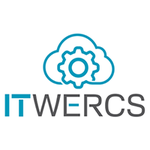| Product | |||
|---|---|---|---|
| Review & Ratings |
No reviews available |
No reviews available |
|
| Description |
Lavu is a cutting-edge, mobile point-of-sale (POS) software primarily designed for the restaurant and hospitality industry. It stands out with its easy-to-navigate interface, enabling quick and efficient order processing. A key feature is its customizable menu options, allowing for real-time updates and modifications. Lavu excels in table and reservation management, streamlining the dining experie... Read more about Lavu |
ITWERCS is a comprehensive restaurant management software designed to optimize and streamline all aspects of restaurant operations. The platform integrates point-of-sale (POS) systems, inventory management, employee scheduling, and customer relationship management (CRM) into a single unified solution. ITWERCS allows restaurant owners and managers to efficiently handle orders, monitor stock levels,... Read more about ITWERCS |
|
| Free Trial |
NA |
NA |
|
| Starting Price |
$99 Per Month |
||
| Category Features | |||
| Other Information | |||
| Deployment | Cloud Hosted | Cloud Hosted | |
| Devices Supported | Web-Based, iPhone, | Web-Based, | |
| Pricing Model | Flat Rate | Contact Vendor | |
| Support | 24x7 Support, Email, Phone, Chat, Knowledge Base | Chat | |
| Target Company Size |
Self-Employed,
Small-Business,
Midsize-Business,
Large-Enterprise-Business
|
Self-Employed,
Small-Business,
Midsize-Business,
|
|

